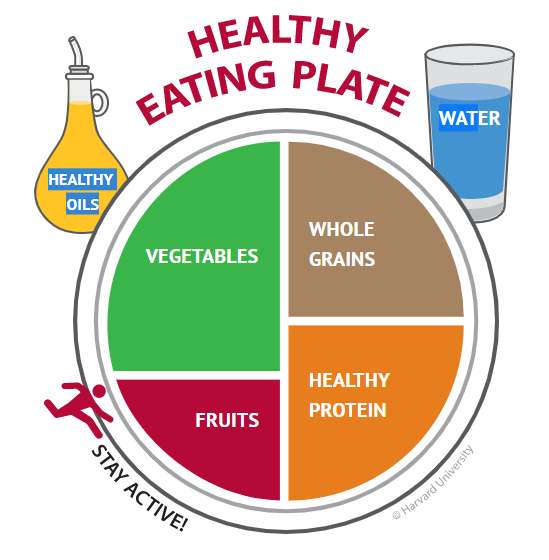Food is so essential to Jewish living and healthier food choices help us fill the Mitzvah (commandment) of ‘Shemirat haguf’, which translates as the duty and responsibility of taking care of our bodies.
The Jerusalem Talmud teaches “…it is forbidden to live in a city that does not have a vegetable garden:. (J.T. Kiddushin 4:1266d).
In Judaism, a healthy body gives us the strength to fulfill the mitzvot (sacred actions) of our religion. Our healthy body helps us thrive in everyday life.
How do we do that? We begin with diet and nutrition in our environment, the kitchen of our sanctuary, our home.
5 Quick Tips to Stock a Healthy Kitchen
1. Produce
It is important to choose fruits and vegetables which are locally grown whenever you can, and eat plenty every day. Aim for a variety of colors — variety is as important as quantity; no single fruit or vegetable provides all of the nutrients you need to be healthy.
2. Grains
Trade the white grain for Whole Grain such as barley, bulgur, quinoa, brown rice, and more. These are easier to digest and have many more benefits.
3. Protein
There are so many delicious proteins such as fresh fish, chicken, turkey, tofu and eggs, and a variety of beans and nuts. Protein will keep you satiated and give you the energy especially after a workout. Remember to balance your plate with lots of vegetables & fruit, whole grains and healthy fats as well.
4. Fats and oils
Use the purest of oils if possible for sautéing vegetables, stir-frying fish or chicken, and as the base of salad dressings. Extra Virgin Olive Oil, Coconut Oil and Avocado Oil are the best oils. Stay away from Canola oil and all other vegetable oils out there.
5. Other essentials
Even a small amount of a high-quality ingredient can have a big impact on flavor. Stock your kitchen with high-quality basics like extra virgin olive oil, fresh and dried herbs, balsamic vinegar, and a variety of unsalted nuts (such as walnuts, almonds, and pistachios- rich in high fats, these also make up great snack ideas), and you’ll have flavorful building blocks for any recipe.

The main message of the Healthy Eating Plate is to focus on diet quality: How to Build a Healthy and Balanced Diet?
Make Fruits and Vegetables the majority of your meal – ½ of your plate.
Fruits should be consumed in the morning due to the impact on blood sugar. 3 part vegetable per plate for lunch and dinner. Aim for color and variety, and remember that potatoes don’t count as vegetables on the Healthy Eating Plate because of their negative impact on blood sugar.
Make Whole Grain- ¼ of your plate.
Whole and intact grains—whole wheat, barley, brown rice, quinoa and foods made with them, such as whole wheat pasta—have a milder effect on blood sugar and insulin than white bread, white rice, and other refined grains.
The power of protein- ¼ of your plate.
Fish, poultry, grass-fed beef, nuts and beans are all healthy, versatile protein sources—they can be mixed into salads, and pair well with vegetables on a plate. Limit red meat, and avoid processed meats such as sausage and charcuteries.
Healthy Oils.
Avoid oils like, canola, soy, corn, sunflower, peanut, and hydrogenated oils, which contain unhealthy trans fats. Use healthier oils like Extra Virgin Olive Oil, Coconut Oil and Avocado oil.
Stay Hydrated
Drop all sugary drinks and sodas. Keep a bottle of water with you during the day. If you don’t like the taste of plain water, try adding a slice of lemon or lime, on hot days add pieces of frozen mango or pineapple to your water. Drink water before, during and after a workout.
Stay Active
Choose activities that you love, and stay consistent. Consistency is key to finding motivation. Prepare a workout plan, or schedule in your workouts like appointments and show up for them. Move throughout your day. Find an accountability partner, and keep changing up your routine, since variety will keep it fun. So many health benefits accumulate from physical activity.
Our tradition calls the mitzvah of health Shmirat Haguf– literally, “guarding the body.” In the Book of Devarim (Deuteronomy 4:9) we find the verse, “Guard yourself and guard your soul very carefully.
In Conclusion, after reading the above, I am hoping that I’ve added more value, and that a fire has been ignited inside of you to want to lead a healthy lifestyle Journey. Hoping you give yourself and your loved ones the greatest gift of health, after all it’s a Mitzvah.
With Love
xoxo Ilanit BS, CPT, CNS

